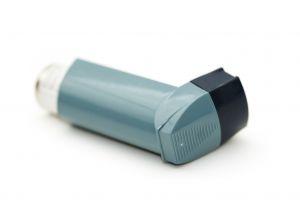4 Ways Asthmatics can Protect Themselves This Winter

The winter will soon come in full force. While some individuals may welcome the cold air with open arms, asthma sufferers should take extra precaution during the chilly wintery months. This is because according to health experts, the season change substantially intensifies asthma symptoms. The reason is simple: when asthmatics inhale cold air, the clash of temperatures (cold outside air and warm air in your lungs) increase the chances of experiencing a bronchospasm, a condition that contracts and narrows air passages which makes it difficult to breathe.
Naturally if you experience more frequent asthma attacks, the more heavily dependent you will become on your inhaled steroid medications—and too many steroids have negative consequences, including growth stunts in children, and the development of osteoporosis and glaucoma in adults.
While there is no way to control the weather there are some tactics you can take to alleviate symptoms and monitor the amount of exposure to cold air, reducing the need for excess medication. To learn some simple asthma management tips to help keep your asthma regulated this winter, continue reading below.
1. Increase Vitamin D& C
New research suggests that there may be a direct link between a vitamin D-deficiency and lung function. According to findings published in the American Journal of Respiratory and Critical Care Medicine, asthmatics with a lower dosage of vitamin D in their systems have a higher risk of airway inflammation than asthmatics with a high-vitamin D intake. Researchers also said that higher vitamin-D also helps steroid medication work more efficiently—which means less “puffs” are needed.
That said, it’s important to point out that most vitamin-D is absorbed through the sun. However, in the winter months the sun is less present, and thus it’s harder to acquire the necessary vitamin-D intake. To get the proper daily amount, it would be best to try to get it via diet or in supplemental form and invest in a light box which can stimulate real sunlight. You can purchase a light box at most major retail stores.
In addition, a higher intake of vitamin C during the winter months may help boost your immune system and lower your chances of contracting the flu, which for asthma patients can sometimes result in harsher symptoms and secondary complications.
2. Have a Hot Cup of Coffee
When trying to keep yourself warm you may want to grab a cup of steaming cup of black coffee, tea or hot chocolate. Health experts say caffeine can sometimes work similar to theophylline, a chemical commonly found in asthma medication. Regular coffee drinkers also seem to have better asthma management, according to studies.
Although caffeine is listed as one of the asthma-fighting power foods, by no means is caffeine meant to replace asthma medication (it is recommended use is for “in-case of emergency” situations only).
3. Participate in Indoor Exercises
Light exercise is an important health benefactor, even for those who have exercise-induced asthma. But to make sure that you decrease your chances of having an attack, exercise indoors. Do not expose yourself to the cold air by running outside—find an indoor track or do mild exercises at home. It’s also recommended to do “winter activities” such as ice skating or playing hockey in an indoor facility.
4. Wear Proper Winter-Wear. Lastly, while the best way to avoid inhaling cold air is to simply stay inside, if you need to step out it’s crucial you wear the proper clothing and bundle up. This means wearing a scarf over your nose and mouth to prevent the cold, dry air from seeping in your lungs and inflaming your airways.
This is a guest post from Jacelyn Thomas. She can be reached at: jacelyn.thomas @ gmail.com.






